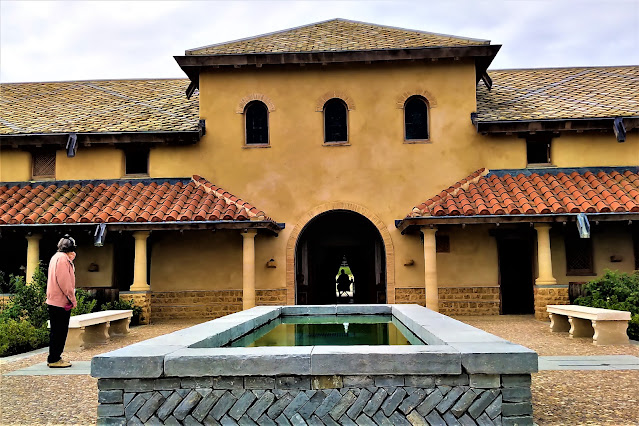Roman Glass (in Britain)
This afternoon I am reporting on decorative glassware in Roman Britain. This follows a visit to the British Museum in London.where an interesting selection of relevant items is on display. These items can be viewed in the video clip below.
The video clip incorporates supporting narrative information. More information is provided below, the core of which has been obtained from a publication titled 'Life in Roman Britain' by Joan Alcock, ISBN 0-7524-3593-0.
Much of the glass would be domestic ware, some of it made in the workshops of Caister by Norwich (Norfolk) and Wilderspool (Cheshire), where fine silica sand is found.High quality work came from the Rhineland (Germany) where the Cologne and Trier workshops produced so-called snake-thread vessels, examples of which have been found in London and Canterbury. Some glass was wheel-cut; a handsome facet-cut vase survived in Banwell (Somerset). A fourth-century engraved glass vessel showing a hare hunt was found at Wint Hill (Somerset) and another with dancing satyrs and *Maenads came from Dorchester (Durnovaria). Prized pieces were put into graves to give pleasure to their owners in the next world.
(*Maenads were often referred to as the 'raving ones'. They were the female followers of Dionysus, the Greek god of wine, fertility and ritual madness.)
Video clip
More Information
Here is a link to a tour of Roman London.
Persons interested in glass making may find this link of interest.


Comments
Post a Comment